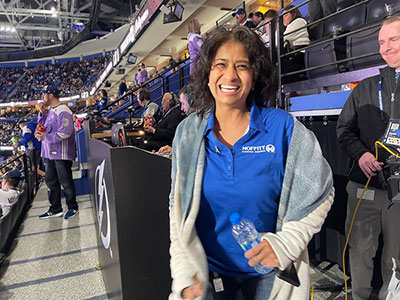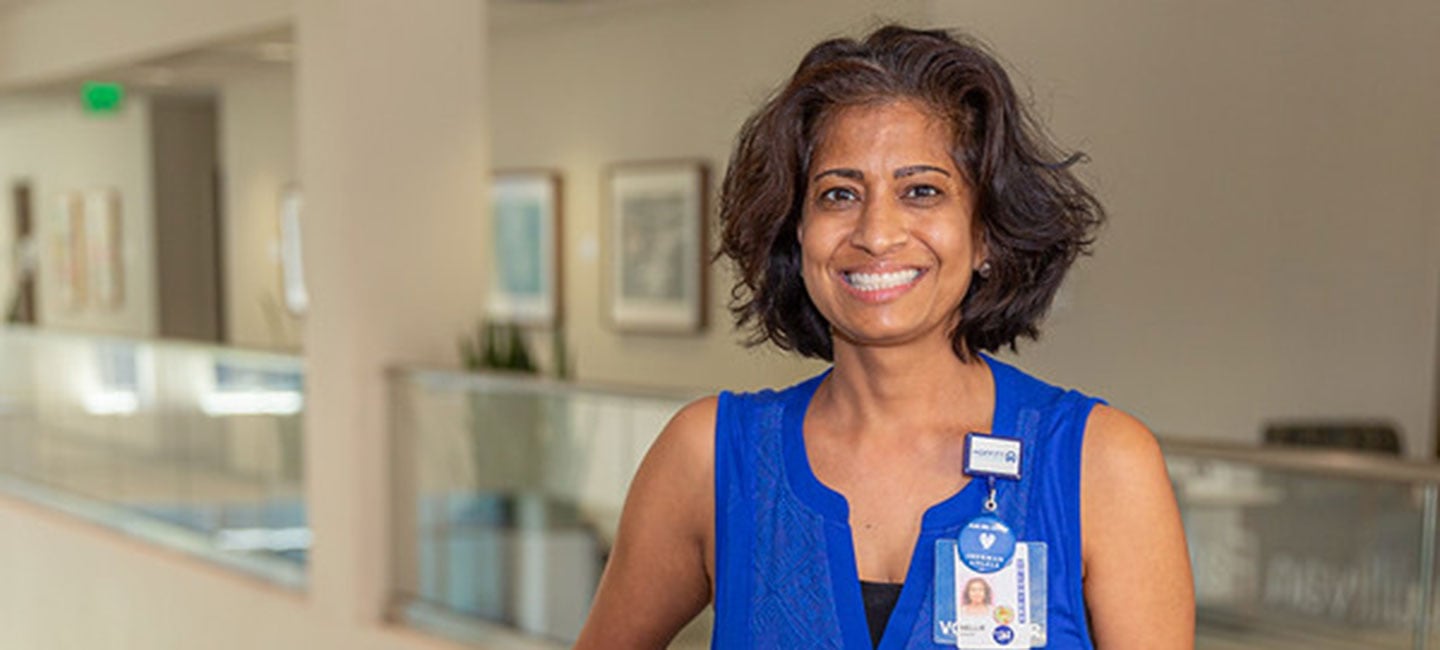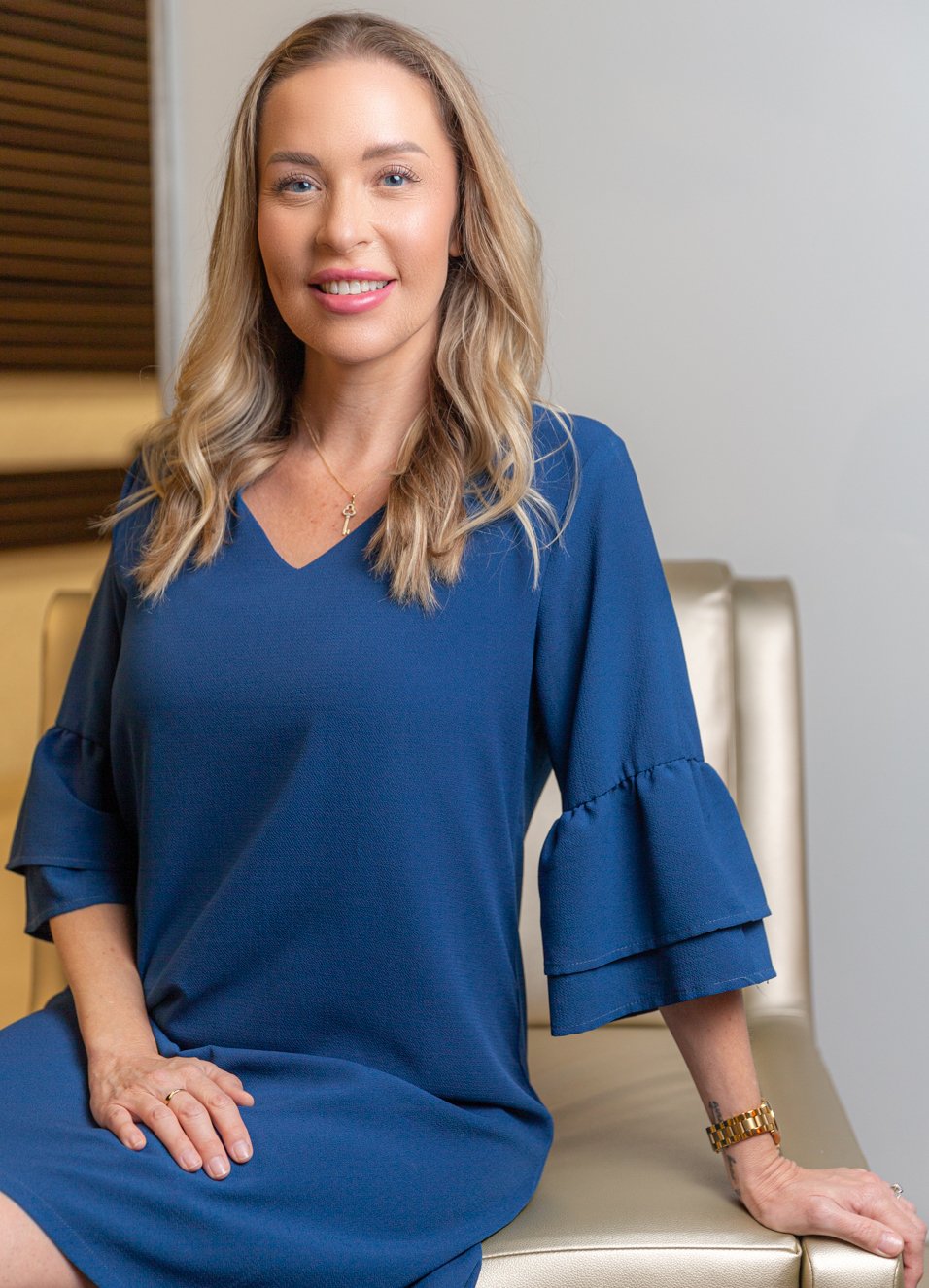The Bell of Frustration
Nellie Singh lived a Carrie Bradshaw life with high ceilings and walk-in closets in Astoria, New York. Night-time art crawls, concerts in Battery Park, managing multiple restaurants – she was thriving.
In February 2016, she found a lump on her chest and thought it was something with her breast. Tests and scans showed it was stage 4 non-small cell lung cancer. She was handed a manuscript-size informative binder about clinical trials. She got a second opinion and started treatment one month later, on her 40th birthday. She was in shock and didn’t have time to fully process what was happening and what her life was about to become.
“I was in a hazy bubble, floating through the steps while in denial,” Singh said.

Nellie Singh was one of the Moffitt patients honored at the 2022 Hockey Fights Cancer Night at the Tampa Bay Lightning game.
A lifelong nonsmoker, Singh felt the effects of the stigma that surrounds lung cancer. She says she felt blamed for her diagnosis, especially when her primary care doctor suggested smoking was the only way to get lung cancer.
According to the Centers for Disease Control and Prevention, up to 20% of lung cancers in the United States happen to people who have never smoked or smoked fewer than 100 cigarettes in their lifetime. Secondhand smoke contributes to an estimated 7,300 lung cancers each year in the U.S.
Singh received treatment in New York for six months until her family finally won and moved her down to Clermont, Florida, so that they could help with appointments and travel. She lived alone in New York with two pet cats and teases that she had to move because her “roommates weren’t paying rent.”
Singh transferred her care to Moffitt Cancer Center, where she underwent radiation and chemotherapy for three long years. Because of her advanced stage, doctors were worried the cancer would become resistant to treatment. Long-term steroids and stimulants combined with her treatment gave Singh “chemo brain.” She still suffers from aftereffects of treatment to this day, experiencing confusion, memory loss and trouble concentrating daily.
“I feel many people have a beginning, middle and end to their treatments, but not me,” Singh said.
Hearing other patients ring the bell to signal the end of their treatment frustrated Singh. It started to sink in that she would never ring that bell. Stage 4 lung cancer is a lifelong disease and that would most likely require treatment for the rest of her life. She asked to take a break from treatment three years ago, and since then, her scans have been clear.
Singh and The Bell have mended their relationship. She is no longer resentful of it, but feels no desire to ring it. It’s not part of her story.
“I’m still looking for the pieces of my life that exploded after my diagnosis,” Singh said.
No longer Carrie Bradshaw, Singh is trying to find her path in Clermont. She’s traded New York nightlife for quiet nights at home with her cats. It’s a big change, but she’s not the same person she was before cancer. She’s become a patient advocate at Moffitt and is now dedicated to helping other patients navigate life disruptions that come with a cancer diagnosis.



